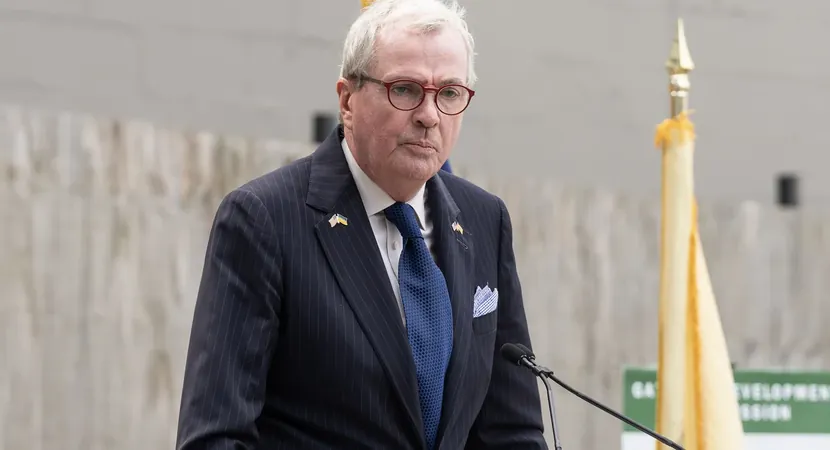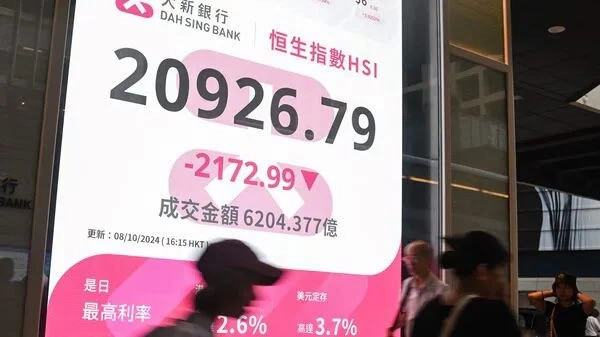
New Jersey Fights Back: Legal Battle Over Manhattan’s Congestion Pricing Intensifies Just Days Before Launch
2025-01-02
Author: Ting
Overview of the Situation
In an escalating legal showdown, New Jersey is making a final push to block New York City's controversial congestion pricing scheme, which is set to be implemented this Sunday. This dramatic attempt is fueled by concerns over the economic impact on commuters and surrounding communities.
Legal Actions Taken
Late Tuesday night, New Jersey Attorney Randy Mastro filed a motion with U.S. Senior Judge Leo Gordon, seeking clarification on a recent ruling that requires the Metropolitan Transportation Authority (MTA) and the Federal Highway Administration (FHWA) to provide further details about the congestion pricing program. The plan charges drivers a toll as they enter Manhattan below 60th Street, a first-of-its-kind initiative in the United States intended to alleviate traffic congestion and reduce vehicle emissions.
Arguments Presented
In his filing, Mastro argued that Judge Gordon’s ruling effectively rescinds critical federal approvals for the program, which should halt its implementation until further review is completed. "To permit the MTA to move forward with this nation’s first-of-its-kind congestion pricing scheme before the FHWA has even begun, let alone completed, the additional review that this Court has ordered, would be fundamentally inconsistent with federal appeals law," Mastro contended.
Judicial Hearing and State Responses
The judge is due to hold a hearing on New Jersey’s request this Friday, leaving the future of the congestion pricing program in a precarious position. New Jersey Governor Phil Murphy, alongside his legal team, is seeking to halt the MTA's plans amid fears of significant economic repercussions for New Jersey commuters who travel into New York City daily.
New York's Perspective
While New York officials, including Governor Kathy Hochul and MTA Chair Janno Lieber, believe the ruling does not prevent the toll program from starting as scheduled, tensions are rising. They assert that the strategy is essential for addressing the city's chronic traffic problems and generating revenue needed to enhance public transit infrastructure — estimated to be in the billions of dollars.
Details of the Congestion Pricing Plan
The congestion pricing plan in question proposes a base toll of $9 for cars during peak hours, from 5 a.m. to 9 p.m. on weekdays and 9 a.m. to 9 p.m. on weekends, with a reduced rate of $2.25 during overnight hours. Commercial vehicle rates are even higher, while motorcycles will see separate, lower fees.
Concerns and Implications
However, opponents of the plan are concerned it may simply shift traffic congestion to neighboring areas and create further economic strain on communities outside the city's borders. Critically, Judge Gordon’s earlier ruling also instructed federal and MTA officials to justify why the mitigation plans allocate more funding to alleviate potential traffic impacts in the Bronx as opposed to New Jersey, highlighting the complexities and potential inequities of the program.
Conclusion and Future Outlook
As we await the judge's decision on Friday, both states remain entrenched in a dispute that could affect thousands of daily commuters and shape the future of urban traffic management across the nation. Will New Jersey's last-minute legal maneuvers succeed, or will New York City proceed with this groundbreaking initiative? Stay tuned for what could be an unprecedented moment in transit history!


 Brasil (PT)
Brasil (PT)
 Canada (EN)
Canada (EN)
 Chile (ES)
Chile (ES)
 Česko (CS)
Česko (CS)
 대한민국 (KO)
대한민국 (KO)
 España (ES)
España (ES)
 France (FR)
France (FR)
 Hong Kong (EN)
Hong Kong (EN)
 Italia (IT)
Italia (IT)
 日本 (JA)
日本 (JA)
 Magyarország (HU)
Magyarország (HU)
 Norge (NO)
Norge (NO)
 Polska (PL)
Polska (PL)
 Schweiz (DE)
Schweiz (DE)
 Singapore (EN)
Singapore (EN)
 Sverige (SV)
Sverige (SV)
 Suomi (FI)
Suomi (FI)
 Türkiye (TR)
Türkiye (TR)
 الإمارات العربية المتحدة (AR)
الإمارات العربية المتحدة (AR)